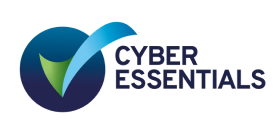From empowering your team to facilitating a powerful omnichannel strategy, the impact of a content management platform can reach far and wide.
With a multitude of factors to consider when researching CMS platform options, it’s far from a black and white decision. We’ve been dealing with content management platforms for a while now – 22 years to be precise – and we’ve gotten the nuts and bolts of them pinned down.
So, we’re keen to share some thoughts on how to choose a CMS platform…
But first, what is a content management platform?
A content management platform is a software designed to manage the content of a website or other application. As the cornerstone of your content strategy, a CMS platform is central to your team’s collaboration.
Top level decisions
What kind of CMS platform will you opt for?
The structure is paramount to your decision – and it will be derived from what your company needs. Deciding on hosting options and the structure of the content management platform (monolithic, decoupled or headless), will limit the CMS vendors available to you, decluttering the process instantly.
The what: on-premise, hosted or software as a service (SaaS)?
On-premise CMS platform
With an on-premise CMS platform, you purchase a license from a vendor. The license includes software updates and maintenance – but these need to be carried out manually. A set of key responsibilities lie with you. These include security, infrastructure and hosting. Overall, on-premise content management platforms tend to be more resource heavy compared to other options.
The choice of content management platform is dependent on how it integrates with existing mission critical systems.
Cloud-hosted CMS
Cloud-hosted CMS platforms are similar to on-premise, in the sense that there is still a license to be purchased, but the installation happens with leased server space. The differences between the two are ownership of the server space and that patches are automatically applied to the software.
Software as a Service (SaaS)
Software as a Service is probably the most flexible of the three. No installation is needed, while maintenance and updates again happen automatically.
The subscription-based payment system adds another layer of flexibility. Upfront costs and long-term contracts won’t be a source of stress. With SaaS you’ll be able to make the most of continuous enhancements and improvements.
Evolving CMSs: monolithic, decoupled and headless
Content management platforms have evolved over the years, offering buyers a few options to choose from. Monoliths, decoupled and headless CMSs all have a variety of pros and cons that depend on what skillsets you have internally, and how your professional teams collaborate.
Briefly, monoliths have a tightly linked back-end and front-end and come pre-packaged with a set of functionalities. With a decoupled CMS, the front-end and back-ends are developed separately, but the front-end is still there. This means that there is a presentation layer that you can customise with ready-made or tailor-made tools, but content delivery is separate. A headless CMS platform offers detached back-end and front-end, supercharging omnichannel experiences – with higher resource requirements.
If you would like to dive deeper into what monolithic, decoupled and headless CMS platforms are, as well as what they translate to for your business, we’ve put together this handy little guide.
Striking a balance between current requirements and future growth
This is the point where you consider how many people will be leaving in the house, if there are plans of adding more – and what each of them needs from their space.
Requirements gathering
Implementing a new content management platform is a significant investment across the board – from budget to human resources to stakeholder management. To gain a firm understanding of what your business needs, you’ll need to look into gathering an initial set of requirements.
The MoSCow method is a solid place to start. Leverage the expertise of your professional teams to map out must-haves, should-haves, could-haves, and would-haves that will add structure to your search.
The MoSCow method isn’t the only option out there, and it’s important to find a framework that enables you to tap into your teams’ collective knowledge. The outcomes will help you form an RFP that has all the right ingredients.
Consider your growth plans
A key step to success is looking at what you want to build – beyond your CMS. Striking a balance between requirements to enhance the team and audience’s experience and what’s needed for your business to grow is not only tricky – it’s also pivotal.
If your business’s growth plans include geographical expansion, for example, you’ll need a CMS platform that supports localised content. If you want to have full control of your CMS platform's front-end to capitalise on the creative team’s expansion, a headless CMS platform will be just the thing.
Thinking one step ahead when diving into your research is key to ensure that the platform brings value further down the line.
Think about scalability
A CMS platform that accommodates your business’s future growth should be thought of not only in terms of features. Scalability plays a key role in picking the right fit for your unique requirements.
Choosing a CMS platform that scales where and when you need it to can range from traffic spikes to asset storage and beyond.
Last – but definitely not least – don’t go software first! The strategic evaluation of the requirements needs to come before committing to a solution. If you’re curious to find out why, Quba’s Technical Director expands on the reasons it can cause more harm than good here.
Cost
Cost is a pivotal part of the equation. Needless to say, it will impact your choice of content management platform.
There are many things to question:
• What is there to your investment?
• If the project is outsourced, what cost are you looking at?
• What is the projected investment if the project is undertaken in-house?
• What specialist talent will be needed to complement your in-house skillset, if any?
• What upfront costs are involved, if any?
Flexibility longer term is another piece of the puzzle. Do you have a one-off licensing fee, or are you on a subscription payment model? The payment structure, hosting and ongoing maintenance requirements for the solution of your choice will paint a different picture each time.
Considering which mix suits your business’s bottom line – and which will prove the most lucrative investment of the lot – is one of the highest priorities.
Technology integrations
Evaluating solutions also means evaluating how they fit in with what’s already there. When exploring your various stakeholders, the marketing, sales and IT teams are likely to have an abundance of tools they work with daily.
The choice of content management system is dependent on how it integrates with existing mission critical systems.
Technical skillsets needed
The technical skillset needed to keep the CMS platform up and running may differ to the requirements of your current system – or to the specialised skillset in- house.
If you’re planning on working with an outsourcing partner, the support packages available are a consideration. It’s important to map out maintenance and upkeep work and understand how it will impact recurring costs. Security and infrastructure are also key considerations.
An intuitive system
How easily would you settle into the new environment? The adoption rate of a new solution within a business can vary, significantly.
Different content management platforms have a different complexity level, which is likely to impact how your team currently works. The intuitiveness and simplicity of a CMS platform is key to ensuring your professional teams are happy and empowered to drive growth for your company.
Authorship experience
The authorship experience is one to look at when thinking about the editorial team.
How will they approach content creation within the CMS platform? What is their user experience leading up to content editing? Related questions arise when considering how other teams interact or use the CMS platform in their respective roles.
Training may be needed to make the transition as smooth as possible. Thinking about how it will integrate with their routines can lead to increased automation and streamlined processes.
Customisation
Flexibility drives value for your team, as well as your audiences. The ability to swap out templates efficiently and implement rapid changes as user journeys evolve can increase your strategy’s competitiveness.
A CMS platform’s customisation capabilities need to take centre stage for your business to thrive. Things to consider include:
- The effort needed to change the look and feel of your front end
- The cost of more features if needed
- The documentation that’s made available to you by the vendor
- How easy it is to edit the user interface/experience for internal teams to work better or faster
Marketing capabilities
Empowering the marketing team to reach audiences more effectively is a cornerstone of a content management platform. The blogging-email-socials trifecta is one to look at.
Blogging
From ease of drafting (the authorship experience we mentioned earlier) to how fast changes show up on the front end after they’ve been processed, a new content management platform needs to follow your marketing team’s speed.
Inquiring what the content creation workflows and permissions are, offers another layer to what your marketing team can do with the new solution.
Social media
What if you need to leave the CMS to post on social media? Or review analytics? Ensuring there is a dashboard to bring everything together will save time and effort down the line.
Email marketing
Powerful email marketing can drive campaigns and open new audiences for your website. Inquiring on the email marketing capabilities of your CMS will enable you to understand how it can impact your marketing team’s output over the coming years.
Security
Last – but definitely not least – security should be a fair chunk of your research. Choosing a platform that has low vulnerabilities might just be as important as making sure your home is protected.
With a cloud or SaaS option, the security aspect is handled by the provider, meaning a lower investment on security on your end. Regardless, vendors will have security accreditations which you can look at, and they will perform regular testing.
PEN testing is a key consideration when reviewing vendors and how they approach the solutions’ security. If they regularly PEN test their software, then you know they value the importance of security. Even better if they adhere to ISO27001.
The high-stakes conundrum of choosing a CMS platform is linked to thorough research of both the software available to you, as well as your team’s needs.
If you think you need a pragmatic partner that will guide you to the content management platform your business needs, then it’s time to contact Quba’s digital specialists.
Get more of this by subscribing to our regular newsletter





